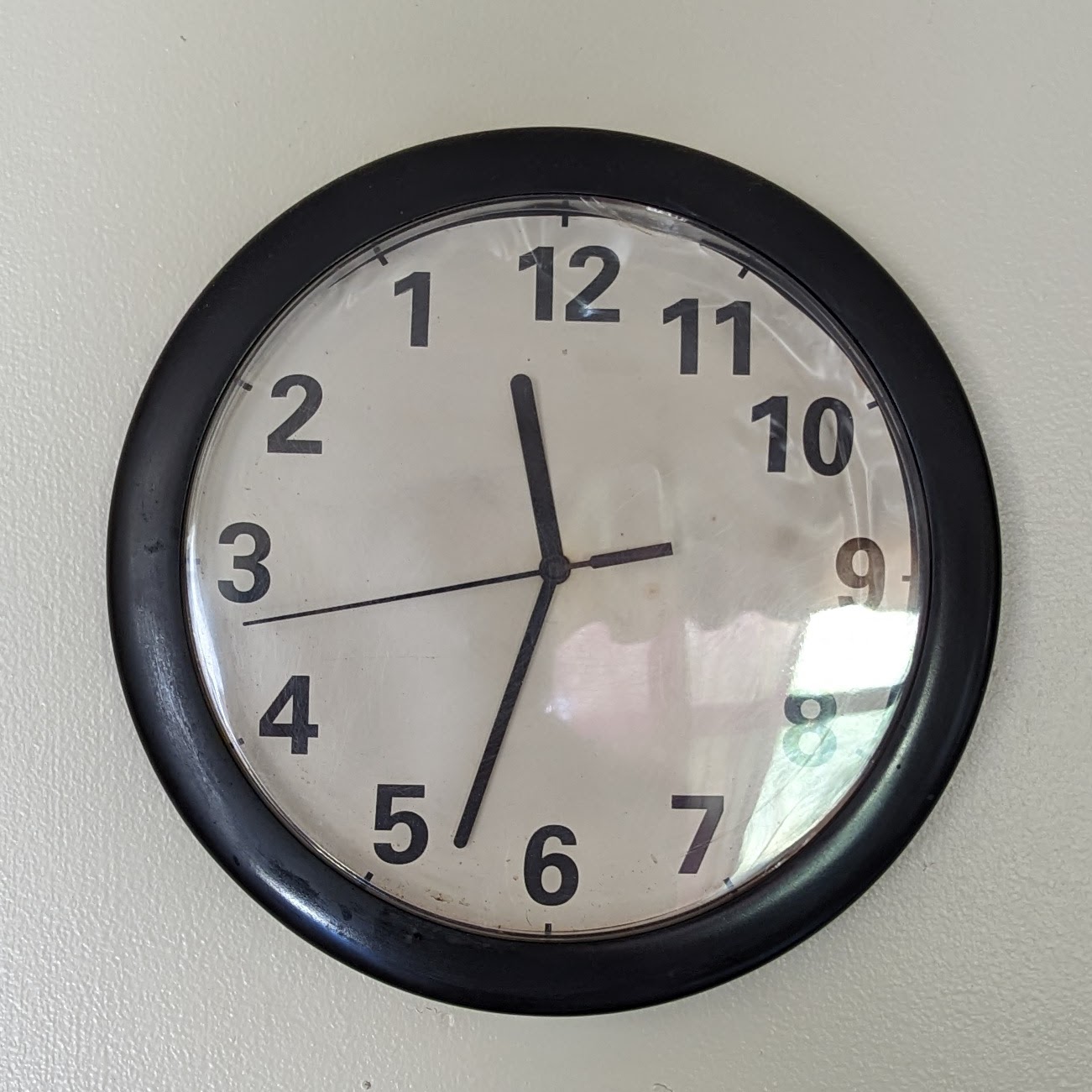Was there an alternative adjective to “clockwise” other than “the rotation you take around left hand”?
Also, how did all watch companies around the world agree on what the direction of “clockwise” is?
“Sunwise”, and for the exact same reason.
Clocks go clockwise because their predecessors did. What were their predecessors?
Sundials.
How does the shadow go around a sundial? Well, sunwise, of course.
Counterclockwise, as said in another comment, was “widdershins”, from a Middle Low German phrase meaning “against the way”.
I am trying to picture it, but I think the sunwise convention only works in the Northern hemisphere.
Yep - in the northern hemisphere a sundial shadow will move from west to east in a clockwise fashion; in the southern hemisphere it still goes west to east but does so moving anticlockwise.
And if I’m thinking about this correctly, people between ~20N and ~20S latitudes will have it reverse throughout the year and and sometimes be a straight line.
Wait, it’s all anglo-centric?
Always has been.
🌍🏴🧑🚀🔫🧑🚀
This turned out to be a surprisingly fascinating question lol.
A guy I know owns this clock, which basically proves that everything in life is pointless and arbitrary:

Also why the seemingly arbitrary graduations, 24 hours, 60 minutes, 60 seconds. If it was say 10 hours in a day, 100 minutes in an hour, 100 seconds in a minute, seconds would be close to the same amount of time. Same with latitude and longitude, why 360 degrees in a circle with 60 minutes in a degree and 60 seconds in a minute.
These numbers aren’t arbitrary, they are from different base numbering systems.
60 can easily divide by 2, 3, 4, 5, 6, and 10.
12 can easily divide by 2, 3, 4, and 6 (notice how much overlap there is).
10 only divides easily by 2 and 5. Common fractions like 1/4 or 1/3 now require decimals.
Basically, base 12 and base 60 make it significantly easier to think and work in common fractions.
It is also historically significant, as base 12 used to be more common than modern base 10. Our timekeeping system dates back to the ancient Babylonians, who worked in base 12. This influence is still felt in other places, such as the fact that eleven and twelve have unique names in many languages rather than following the same pattern as everything that comes after them.
Well, clocks are just mechanical sundials. Before clockwise, there was sunwise (or deosil), and clocks’ movements are based off of the movement of a shadow across a sundial.
does that mean that “clockwise” in the southern hemisphere is backwards?
No, because the earth is still rotating the same direction in the southern hemisphere
I read this article and I’m more confused now lol
https://en.wikipedia.org/wiki/Sundial#In_the_Southern_HemisphereEDIT: The last sentience sums it up well tho:
On horizontal northern-hemisphere sundials, and on vertical southern-hemisphere ones, the hour marks run clockwise.
Well well, learn something new everyday.
Pretty weird to think about. And about them having to either face their relevant poles or the equator for them to work equivalently
Turnwise and widdershins
I always heard it as ‘deosil and widdershins’







